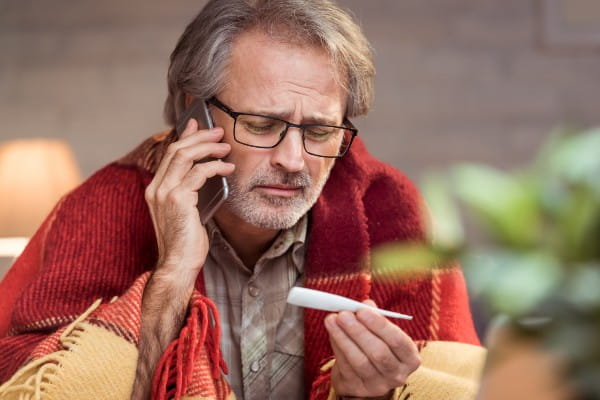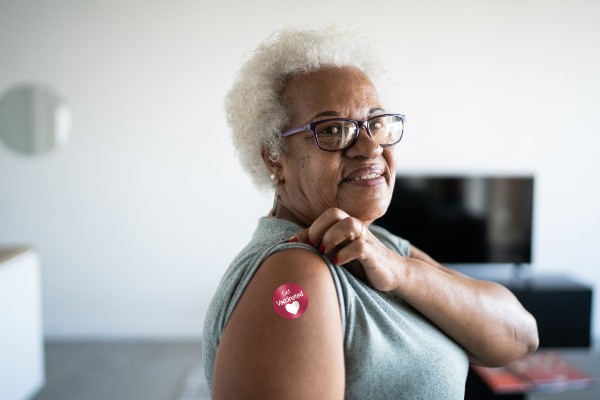You have a tickle in your throat, your nose is getting stuffy and starting to run, and now you’re thinking: Could this be the coronavirus?
Before you drop everything and run to your doctor’s office, read and follow this advice from a Riverside provider. Riverside providers say doing these things will stop the spread of the virus and make sure you get the right care quickly.
Follow these steps if your symptoms are mild
Mild symptoms of COVID-19 (the new coronavirus) can be like a cold and include:
- Low-grade fever (around 100 degrees F for adults)
- Nasal congestion
- Runny nose
- Sore throat
- Mild, dry cough
- Mild body aches
If these are your symptoms:
- 1. Stay home, and keep everyone in your household home as well – but isolate yourself from them.
- 2. Wear a face mask if possible, and if any of your household must go out, they should wear a face mask, too.
- 3. Rest and drink plenty of fluids until you feel better.
- 4. Monitor your symptoms.
“It’s important to treat all mild respiratory symptoms as a possible case of the new coronavirus,” says a Riverside provider. “Stay home and away from others so you don’t spread the virus, and monitor your symptoms until you feel better.”
How to monitor your symptoms
Most mild to moderate cases of COVID-19 can be treated at home, but cases with more severe symptoms should be evaluated by your primary care provider.
Here’s how to monitor your symptoms and what to do if they get worse:
- Write down your symptoms every day until you feel well again.
- Take your temperature in the morning and evening every day until you feel better. Record them each day.
- If your symptoms get worse, call first. Don’t just come in.
Call your primary care doctor, Riverside Nurse or urgent care if you’re having trouble breathing and your fever and cough aren’t getting better. You will be given instructions for seeking care based on your age, health history, travel history and the severity of your symptoms.
“You may be asked to come to the doctor’s office,” Riverside provider says. “If so, wear a face mask if possible.”
An e-visit through Riverside MyChart may also be an option in some cases.
If you have any of these serious symptoms, call the emergency room or 911:
- Constant trouble breathing
- Persistent chest pain or pressure
- Confusion
- Trouble staying awake
- Blue lips or face
Why you need to call first
If you’re wondering why doctors are asking patients to call before going to any facility for care, a Riverside provider says it’s because it gives the staff time to prepare for your arrival. It also gives your doctor a chance to see if you can get the care you need through an e-visit or a video visit instead of coming into the office.
“In some cases, we can evaluate your symptoms over the phone or arrange an e-visit,” she says. “Calling ahead is good for everyone – it protects you, our staff and our patients who need care for other reasons.”
A Riverside provider adds, “We want everyone to know that it’s still safe to come to your primary care office, but please call first so we can give you the best care possible.”
Visit our Navigating COVID-19 site to learn more about treatment for COVID-19 and how to care for yourself and others at home.



